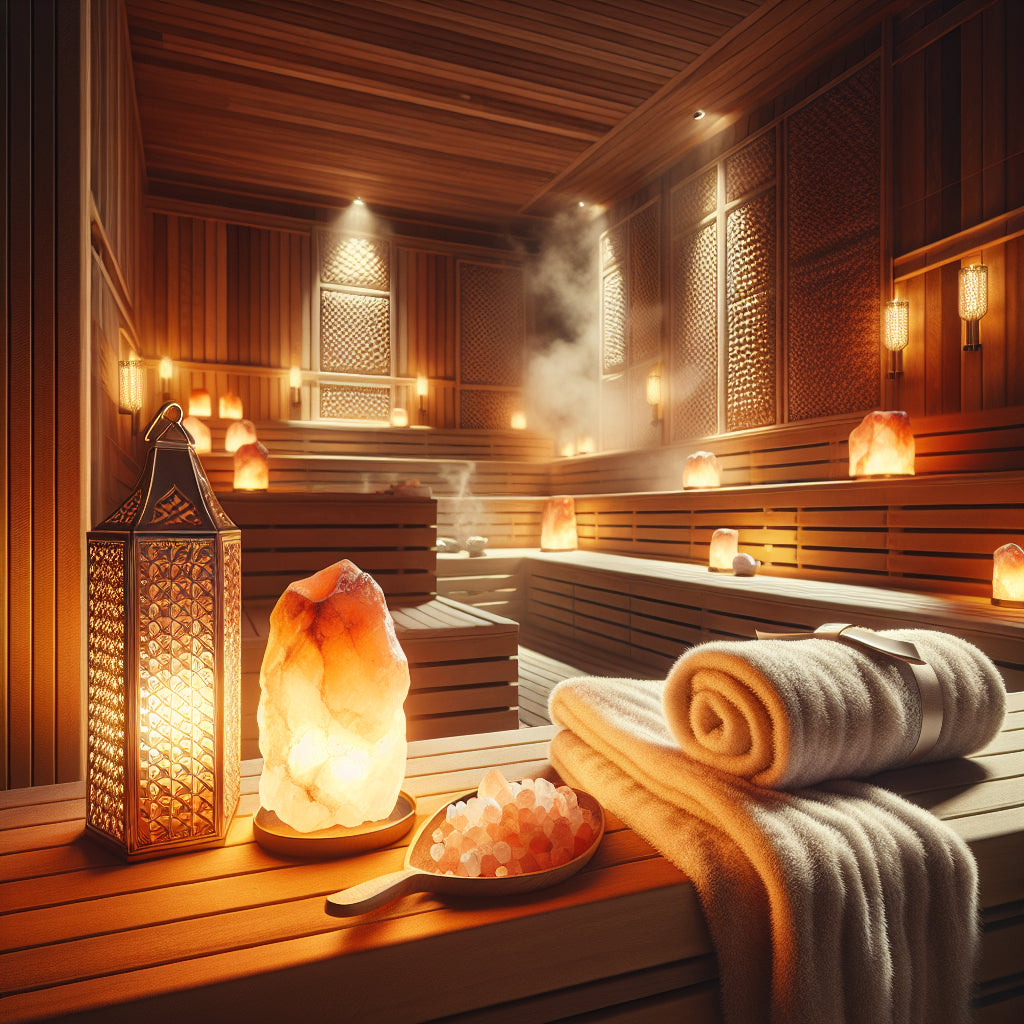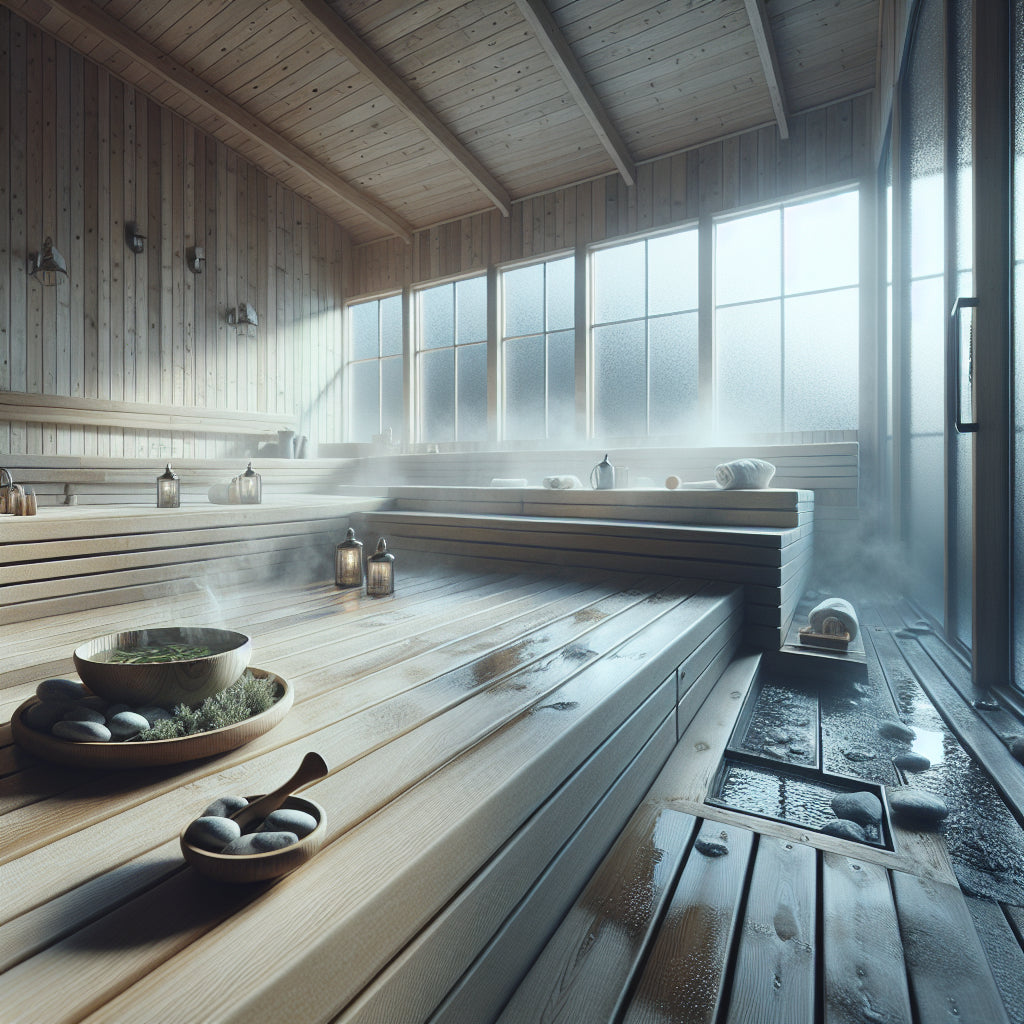Is a Natural Gas Sauna Heater Worth It? A Complete Buyer’s Breakdown
Experience the Power and Efficiency of a Natural Gas Sauna Heater
The Sauna Heater That Balances Power, Efficiency, and Comfort
If you’re designing your dream sauna or upgrading an existing one, the choice of heater can make or break your wellness experience. Natural gas sauna heaters offer a compelling solution, especially for outdoor setups. They’re known for fast heat-up times, consistent temperatures, and long-term cost savings. In this guide, we’ll explore everything you need to know about natural gas sauna heaters so you can make an informed investment in your health and comfort.
What Is a Natural Gas Sauna Heater?
A natural gas sauna heater is a high-performance heating appliance designed to warm your sauna using piped natural gas as its fuel source. Unlike electric or wood-burning sauna heaters, which rely on electrical resistance or combustion of wood logs, natural gas heaters channel fuel directly from your existing gas line, converting it into immediate, powerful radiant heat.
This type of heater is especially favored for its fast heat-up time, strong thermal output, and consistent temperature regulation. It offers a more efficient, low-maintenance solution for individuals or businesses who want the traditional sauna experience without the waiting time, firewood hassle, or high energy bills.
Natural gas sauna heaters work by igniting gas through a burner, typically using electronic or pilot-light ignition. The heat produced warms rocks placed above or around the heating element. As water is poured over these rocks, it instantly vaporizes, creating steam and raising humidity levels—just like in a traditional Finnish sauna.
These heaters often include built-in thermostats, timers, and safety shut-off features, allowing users to control both temperature and duration with ease.
Key Characteristics of Natural Gas Sauna Heaters
✅ Fueled by a connected natural gas line
Gas heaters are connected directly to your home or facility’s gas supply, which means there’s no need for manual refueling, fire-starting, or electricity overuse.
✅ Rapid heat-up time (usually 20–30% faster than electric)
These heaters reach optimal temperatures faster than electric models. While electric units may take 30–45 minutes, gas heaters often reach peak heat in 20–30 minutes.
✅ Stable, high-temperature performance
Unlike infrared saunas, which primarily heat the body but not the room, natural gas heaters can raise the ambient temperature of the sauna space to 180°F (or higher) and hold it there steadily, offering the deep, full-room heat preferred in traditional saunas.
✅ Suitable for larger saunas or frequent use
Due to their robust output (commonly between 30,000 and 90,000 BTUs), gas heaters are ideal for high-volume use—whether you're running daily personal sessions or accommodating multiple users in a wellness business.
✅ Lower operational costs
In many regions of the U.S., natural gas is more cost-effective than electricity. This makes these units a favorite for those who use saunas frequently and want to minimize long-term energy bills.
Where Are Natural Gas Sauna Heaters Most Commonly Used?
These heaters aren’t just powerful—they’re versatile and widely used in a range of wellness settings:
🏡 Outdoor Saunas in Residential Settings
Backyard barrel saunas, custom outdoor spa rooms, and garden retreats all benefit from gas heaters. Homeowners prefer the ease of use and clean operation, especially when they want year-round access without increasing their electric bill.
✨ Luxury Backyard Wellness Setups
For premium home setups that include hot tubs, cold plunges, and saunas, natural gas heaters offer a commercial-grade solution that matches the level of comfort and performance expected in high-end environments.
🌲 Retreat Centers and Boutique Resorts
Wellness businesses often choose gas heaters for their reliability and cost efficiency. These venues typically run multiple sessions per day and require a heater that can keep up without skyrocketing operational costs.
📍 Locations Where Natural Gas Is More Affordable than Electricity
In many rural, suburban, or northern regions of the U.S., natural gas rates are considerably lower than electricity rates. For homeowners or business owners in these areas, switching to gas is a no-brainer when upgrading or building their sauna.
Ready to Heat Smarter?
If you're looking to maximize power, efficiency, and long-term savings, a natural gas sauna heater might be the best choice for your outdoor wellness setup.
👉 Browse our full range of sauna heaters
👉 Explore outdoor sauna models

Natural Gas Sauna Heater vs. Other Heating Options
Natural Gas vs. Electric Sauna Heaters
| Feature | Natural Gas | Electric |
|---|---|---|
| Heat-up Time | Faster | Moderate |
| Operating Cost | Lower long-term | Higher ongoing |
| Installation | Requires gas line | Easier, plug-and-play |
| Maintenance | Occasional service | Minimal |
| Ideal Use | Outdoor, frequent | Indoor, light use |
Natural Gas vs. Wood-Burning Sauna Heaters
| Feature | Natural Gas | Wood-Burning |
|---|---|---|
| Heat Control | Precise thermostat | Manual, less consistent |
| Fuel Source | Clean-burning gas | Firewood |
| Air Quality | Cleaner, no smoke | Produces smoke |
| Convenience | Highly convenient | Traditional, more effort |
Benefits of Using a Natural Gas Sauna Heater
1. Fast and Powerful Heating
One of the biggest advantages of a natural gas sauna heater is its ability to heat up quickly. These units reach the desired temperature in significantly less time than electric or wood-burning heaters—often cutting warm-up time by 20% to 30%. This makes a huge difference when you're short on time or want a spontaneous session after a long day. There’s no need to plan hours ahead or wait around for your space to heat.
For families or businesses with back-to-back sauna users, the rapid reheating capabilities of gas heaters also allow for continuous use without long delays. This high-performance heating capacity ensures that your wellness routine remains seamless and stress-free.
2. Lower Energy Costs Over Time
While the upfront cost of a natural gas heater and installation might be slightly higher than an electric unit, the long-term savings are substantial. Natural gas is consistently more affordable than electricity in many U.S. states, especially where utility prices are steep.
For frequent sauna users—whether you're taking daily detox sessions or running a commercial wellness retreat—this cost-efficiency can lead to hundreds of dollars in annual savings. Natural gas heaters are also more energy-efficient in how they convert fuel to heat, making them a smart investment for the long haul.
Bottom line: Over time, your operating costs drop while your comfort and convenience rise.
3. Consistent and Even Heat Distribution
Few things disrupt a relaxing sauna experience more than fluctuating temperatures. Natural gas sauna heaters are known for their ability to maintain a stable, even heat throughout the entire sauna room. Unlike infrared panels that heat more directionally or wood-burning units that can have hot and cold spots, natural gas heaters distribute warmth uniformly, from the bench to the ceiling.
This consistency is particularly beneficial for health-conscious users who rely on precise heat exposure for therapeutic reasons such as improved circulation, detoxification, or muscle recovery. The better the temperature control, the more reliable the health outcomes.
4. Cleaner Operation Than Wood-Burning
While traditionalists may love the rustic appeal of a wood-burning sauna, there’s no denying the mess and maintenance that comes with it—smoke, soot, ashes, and more frequent clean-ups. Natural gas sauna heaters offer the warmth and authenticity of a traditional sauna experience without the drawbacks.
These units burn cleanly and emit very few particulates, making them a more eco-friendly and health-conscious option. Plus, there’s no need to store and haul firewood or worry about smoke venting properly. For homeowners and business owners looking for a clean, modern setup that respects both their time and environment, gas heaters offer the best of both worlds.
5. Great for Large or Outdoor Saunas
Not all heaters are built to handle spacious or outdoor setups, but natural gas sauna heaters shine in these environments. Their high BTU output means they can easily and efficiently heat larger saunas—whether you’re hosting friends and family in a 6-person barrel sauna or running a wellness center with multiple cabins.
Because they don’t rely on limited electric wattage or manual fire control, natural gas units scale beautifully. And when installed outdoors, they remain safe, effective, and visually discreet. Paired with a well-insulated structure, a gas heater can help maintain a cozy, therapeutic environment no matter the season.
Common Questions About Natural Gas Sauna Heaters
Are Natural Gas Sauna Heaters Safe?
Yes, when installed by a professional. Most models include safety features such as auto-shutoff systems and carbon monoxide sensors.
Do I Need a Permit to Install One?
In most cases, yes. Local codes often require permits and inspections for natural gas installations. Always hire a licensed technician.
Can I Use One Indoors?
Natural gas heaters are typically made for outdoor or semi-outdoor use. Some are compatible indoors if proper ventilation and exhaust systems are installed. Always check with the manufacturer.
What Size Sauna Can It Support?
They usually range from 30,000 to 90,000 BTU, making them suitable for everything from 4-person saunas to large commercial setups.
Key Features to Look for in a Natural Gas Sauna Heater
- BTU Rating (Heat Output): Choose one appropriate to your sauna size
- Stainless Steel Construction: Essential for durability and rust resistance
- Safety Certifications: Look for CSA or UL listings
- Thermostat and Timer Controls: Allow easy and precise temperature management
- Warranty and Serviceability: Choose a trusted brand with strong customer support
Real-Life Use Cases
Backyard Barrel Sauna in Colorado
When a health-conscious couple in Boulder, Colorado, decided to build a backyard wellness oasis, they started with an electric sauna heater due to its easy setup. But after months of use—and mounting electricity bills—they started exploring alternatives.
They made the switch to a natural gas sauna heater and immediately noticed two key improvements: faster heat-up times and significant energy savings. Their new gas-powered unit reached full heat in about 20 minutes, compared to the 40–45 minutes it used to take. More importantly, they tracked a 25% drop in their utility bills over the next 6 months, thanks to the lower cost of natural gas in their region.
For this couple, the decision was more than financial. With two young kids and busy schedules, the convenience of quick, on-demand heat allowed them to enjoy evening sauna sessions regularly without hassle. They also appreciated the cleaner operation—no lingering smell of electrical coils and no hot/cold zones like they’d previously experienced.
“We finally have a sauna that’s just as relaxing to operate as it is to sit in,” the homeowner shared.
Commercial Retreat in Oregon
In southern Oregon, a boutique wellness retreat known for its scenic forest views and holistic therapies was looking to expand its outdoor sauna offerings. The team had been using electric heaters across their facilities but found them unreliable for high-volume use during peak seasons. Their biggest complaints? Long warm-up times, uneven heat when multiple guests used the space, and high electricity costs straining the bottom line.
They decided to pilot natural gas sauna heaters in their outdoor barrel saunas—and the transformation was immediate. With gas, they could heat each sauna to 180°F in just 20 minutes, keeping up with demand during busy hours without guests having to wait. Not only did they see better heat retention, but the saunas remained stable in temperature even as groups rotated in and out.
The retreat also noted a 15% reduction in energy spending after switching just two of their five saunas to gas—a figure that would only grow as they transitioned the rest of their units. But perhaps more telling was the customer feedback: guests consistently rated the saunas higher in comfort and quality compared to the previous year.
“Upgrading to gas heaters improved the guest experience and helped our team focus less on technical issues and more on wellness,” said the retreat manager.
These real-world stories show that natural gas sauna heaters aren’t just a luxury—they’re a strategic upgrade that can enhance both the user experience and the operational efficiency of any wellness-focused space, from family homes to commercial sanctuaries.
Scientific Insight: Why Consistent Heat Matters
A study published in JAMA Internal Medicine found frequent sauna use lowered the risk of cardiovascular disease and overall mortality. This benefit was tied to maintaining consistent high temperatures—something gas heaters excel at.
Other studies support sauna use for:
- Better circulation
- Faster muscle recovery
- Improved mental health
Is a Natural Gas Sauna Heater Worth It?
If you want the benefits of rapid heating, consistent performance, and long-term cost savings, a natural gas sauna heater is a smart investment. It’s especially ideal for outdoor setups and larger saunas that require more powerful heat output.







Leave a comment
This site is protected by hCaptcha and the hCaptcha Privacy Policy and Terms of Service apply.